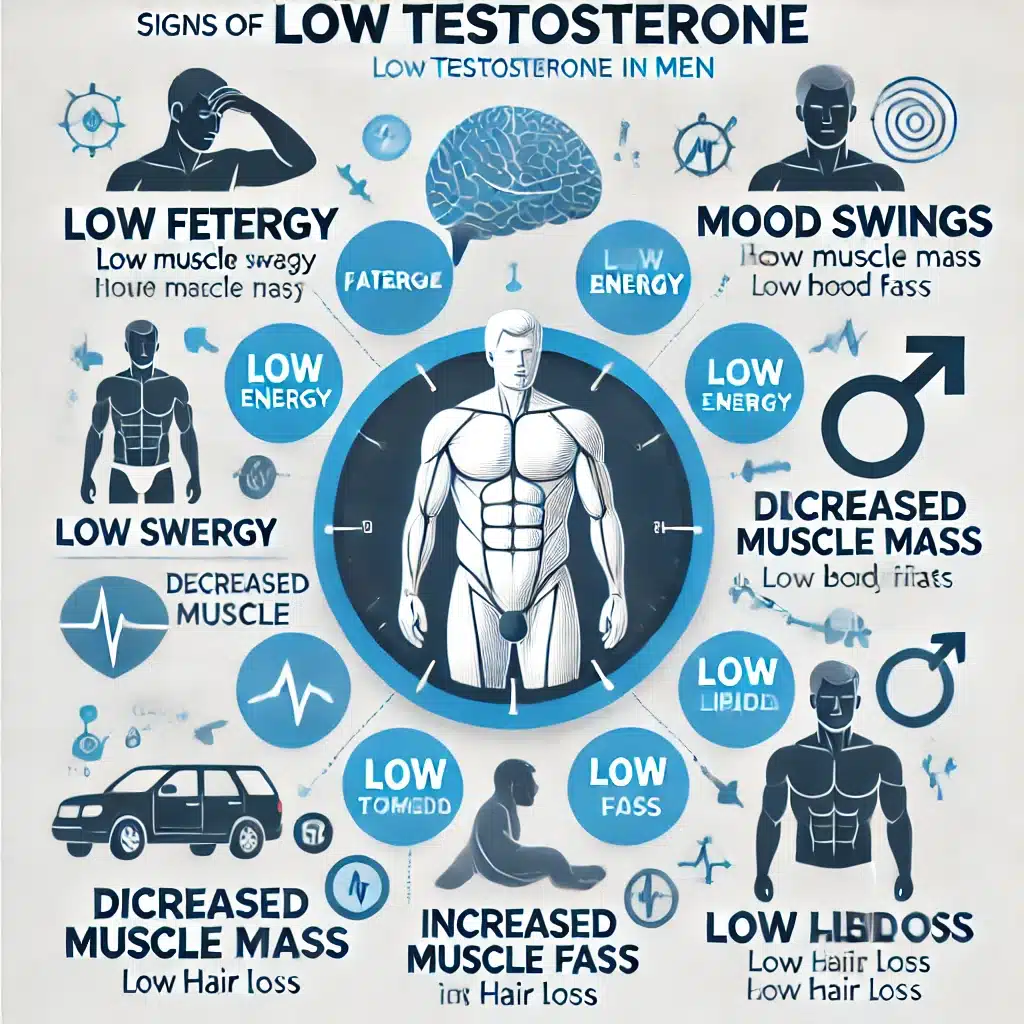Physical Address
304 North Cardinal St.
Dorchester Center, MA 02124
Physical Address
304 North Cardinal St.
Dorchester Center, MA 02124

Testosterone plays a crucial role in overall health, impacting everything from muscle mass and energy levels to mood and libido. However, many people experience the signs of low testosterone without realizing it. Symptoms like fatigue, weight gain, and brain fog are often overlooked or mistaken for aging. The good news? You can take control of your hormonal health through lifestyle changes and targeted strategies.
In this guide, we’ll explore the key signs of low testosterone and provide science-backed ways to optimize your hormone levels naturally. Whether you’re experiencing symptoms or simply want to maintain peak health, this article will equip you with the knowledge you need to feel your best.

Testosterone is a hormone primarily associated with male health, but it’s also essential for women. It affects multiple bodily functions, including:
As we age, testosterone naturally declines. However, lifestyle factors such as poor diet, stress, and lack of exercise can accelerate this process, leading to a range of unwanted symptoms.
One of the earliest signs of low testosterone is persistent tiredness, even after a full night’s sleep. If you find yourself lacking the motivation to get through your day, hormonal imbalance could be to blame.
Testosterone plays a key role in muscle development. When levels drop, maintaining lean muscle becomes harder, and body fat—especially around the belly—tends to increase.
Hormonal imbalances can significantly affect your mental well-being. Many people with low testosterone report feeling irritable, anxious, or depressed. Additionally, difficulty concentrating and forgetfulness are common complaints.
A decline in testosterone often leads to a reduced interest in sex. Men may experience erectile dysfunction, while women might notice a drop in arousal or satisfaction.
Testosterone contributes to hair growth and skin elasticity. Low levels can lead to thinning hair, dry skin, and an overall aged appearance.
Low testosterone is linked to sleep disturbances, including insomnia and restless sleep. This creates a cycle where poor sleep further reduces hormone levels, worsening symptoms.
Your diet has a direct impact on testosterone production. To naturally boost your levels:
Physical activity is a powerful way to optimize testosterone. The best exercises include:
Testosterone is primarily produced during deep sleep. To enhance your sleep:
Chronic stress increases cortisol levels, which suppresses testosterone production. Try stress-reducing techniques such as:
Vitamin D plays a crucial role in testosterone synthesis. Aim for:
Certain herbs and nutrients may help support testosterone levels, including:
If lifestyle changes don’t alleviate your symptoms, it may be time to consult a doctor. Blood tests can confirm low testosterone, and treatment options like hormone replacement therapy (HRT) or specialized medications may be recommended. However, always weigh the benefits and risks before choosing medical interventions.
Recognizing the signs of low testosterone is the first step toward better health. By making intentional lifestyle choices, such as improving your diet, exercising regularly, and managing stress, you can naturally optimize your hormone levels and feel more energized, confident, and focused.
If you’re experiencing persistent symptoms, consult a healthcare professional to explore personalized treatment options. Taking control of your hormonal health today will lead to a more vibrant and fulfilling life.
Have you experienced any of these symptoms? What strategies have worked for you? Share your thoughts in the comments below!